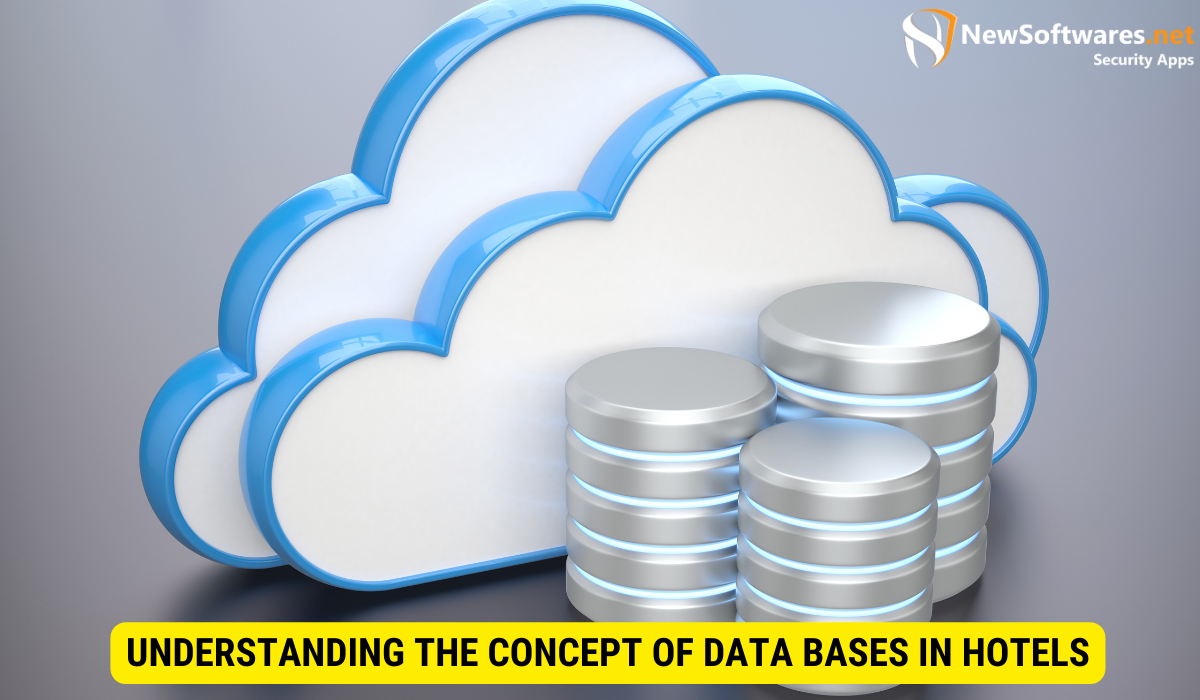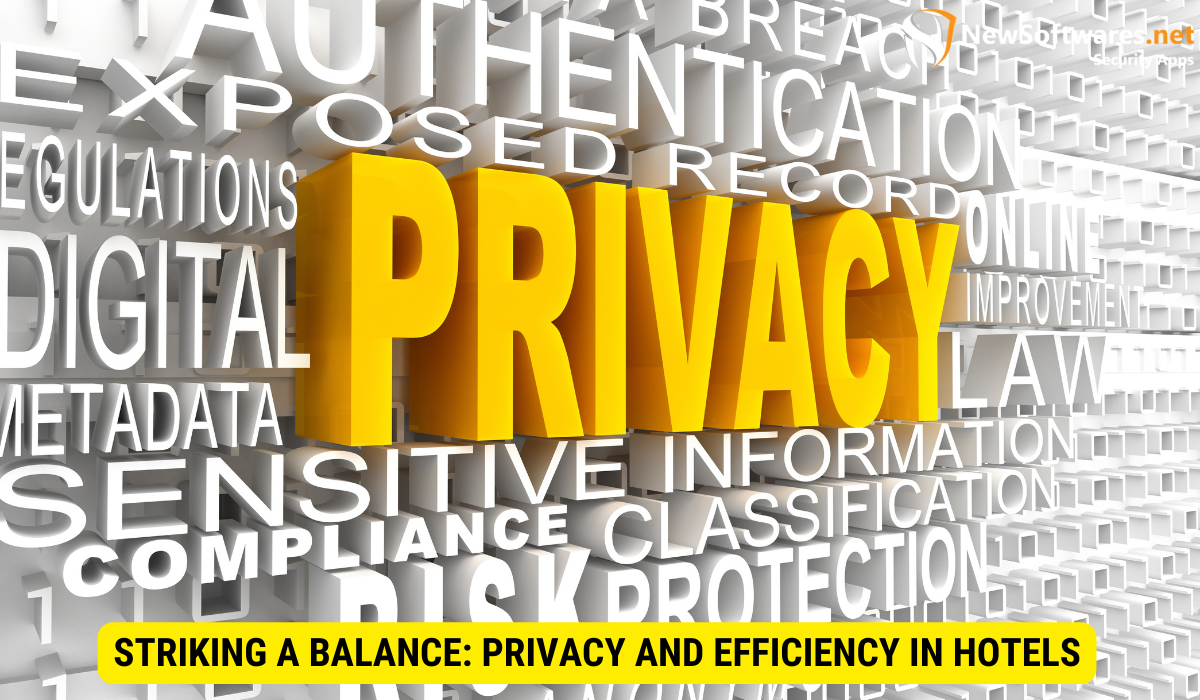Data bases in hotels, while crucial for operational efficiency and personalized guest experiences, can be a privacy concern if not managed responsibly. Hotels must implement robust data protection measures, comply with data privacy laws, and balance operational benefits with privacy concerns to ensure guest data is handled ethically.
“Is Data Bases an Invasion of Privacy in Hotels” Data collection and management have become integral parts of the hospitality industry, enabling hotels to provide personalized experiences to their guests. However, the increasing reliance on data bases in hotels has raised concerns about privacy invasion. I will explore the concept of data bases in hotels, examine the privacy implications, and discuss the ongoing debate surrounding the use of data bases in the industry. By understanding these issues, hotels can strive to strike a balance between reaping the benefits of data collection and protecting their guests’ privacy.
Understanding the Concept of Data Bases in Hotels

Data bases play a crucial role in hotel management, allowing for efficient storing, organizing, and retrieving of guest information. By utilizing data bases, hotels can enhance their operations, improve customer service, and tailor experiences to individual guests. These databases serve as a centralized repository of guest data, including personal information, preferences, and past interactions.
When it comes to managing a hotel, data bases are the backbone of the entire operation. They provide a seamless and efficient way to store and access guest information, ensuring that every interaction with a guest is personalized and tailored to their specific needs. Whether it’s a returning guest or a first-time visitor, data bases allow hotels to keep track of important details, such as room preferences, dietary restrictions, and even special occasions like birthdays or anniversaries.
One of the key advantages of using data bases in hotels is the ability to streamline the check-in and check-out processes. With all the necessary information stored in one place, hotel staff can quickly retrieve guest details and complete the necessary paperwork in a matter of minutes. This not only saves time for both the guests and the staff, but it also creates a positive first impression, setting the tone for a memorable stay.
The Role of Data Bases in Hotel Management
Data bases in hotels enable seamless check-in and check-out processes, streamline room assignments, and facilitate targeted marketing campaigns. With access to guest preferences, hotels can deliver personalized recommendations, such as room amenities, dining options, and recreational activities. Additionally, data bases aid in tracking guest feedback and resolving any issues promptly, ensuring a positive guest experience.
Imagine a guest arriving at a hotel after a long day of travel. With the help of a well-maintained data base, the front desk staff can quickly retrieve the guest’s information and assign them a room that perfectly matches their preferences. Whether they prefer a room with a view, a quiet corner away from the elevator, or a suite with extra space, the data base holds all the necessary details to make the guest feel valued and appreciated.
Furthermore, data bases play a crucial role in targeted marketing campaigns. By analyzing guest data, hotels can identify patterns and trends, allowing them to create personalized offers and promotions that are most likely to resonate with their guests. For example, if a guest has previously shown an interest in spa treatments, the hotel can send them a special offer for a discounted massage or a complimentary facial. This level of personalization not only increases guest satisfaction but also drives revenue for the hotel.
How Data is Collected in Hotels?
Data collection in hotels occurs through various channels, such as online reservations, loyalty programs, and guest surveys. Guest information is gathered at different touchpoints, including the booking stage, check-in process, and ongoing communication. Hotels aim to collect relevant data that would assist in understanding guest preferences and anticipating their needs.
When a guest makes an online reservation, they provide essential details such as their name, contact information, and sometimes even their preferences for room type or special requests. This initial data collection sets the foundation for a personalized experience throughout their stay. Additionally, hotels often offer loyalty programs that incentivize guests to provide more information in exchange for exclusive benefits or rewards. This not only encourages guest engagement but also allows hotels to gather valuable insights into their guests’ preferences and behaviors.
Another way hotels collect data is through guest surveys. These surveys can be conducted during the stay or after the guest has checked out. By asking targeted questions about their experience, hotels can gain valuable feedback and identify areas for improvement. This data is then integrated into the data base, ensuring that future interactions with the guest are even more tailored and satisfactory.
In conclusion, data bases are a fundamental component of hotel management. They enable hotels to provide personalized experiences, streamline operations, and ultimately, enhance guest satisfaction. By utilizing data effectively, hotels can stay ahead of the competition and create memorable experiences that keep guests coming back time and time again.
The Privacy Implications of Hotel Data Bases
While data bases offer numerous advantages, they also raise concerns about privacy infringement. It is vital for hotels to handle guest data ethically and ensure compliance with data protection laws. Let’s explore the key privacy considerations surrounding hotel data bases.
Data Protection Laws and Hotel Data Bases
Hotels must prioritize guest privacy and comply with relevant data protection laws, such as the General Data Protection Regulation (GDPR) in the European Union. These laws dictate strict guidelines for data collection, storage, and usage, aiming to safeguard individuals’ personal information.
Potential Risks of Data Collection in Hotels
The collection and storage of guest data carry inherent risks, including the possibility of data breaches and unauthorized access. Hotels must implement robust security measures to protect sensitive guest information from cyber threats. Additionally, hotels have a responsibility to educate their staff about data privacy and enforce strict protocols for handling guest data securely.
The Debate: Data Bases vs Privacy in Hotels
The ongoing debate surrounding data bases in hotels centers on striking the right balance between utilizing guest data for operational efficiency and addressing privacy concerns. Let’s examine both sides of this argument.
Arguments for the Use of Data Bases in Hotels
Proponents argue that data bases enhance guest satisfaction by allowing hotels to provide tailored experiences. The ability to personalize amenities, services, and recommendations based on guest preferences can significantly improve the overall guest experience. Moreover, data bases enable hotels to analyze trends, anticipate demands, and make informed business decisions.
Counterarguments: The Privacy Concerns
Privacy advocates express concerns about the potential misuse of guest data and invasion of privacy. As hotels collect and store vast amounts of sensitive information, there is always a risk of data breaches or unauthorized surveillance. Critics argue that data bases can lead to the commodification of personal information and an erosion of individual privacy rights.
Striking a Balance: Privacy and Efficiency in Hotels

While the concerns surrounding data bases in hotels are valid, it is possible to strike a balance between privacy and operational efficiency. Let’s explore some best practices for data management in hotels:
Best Practices for Data Management in Hotels
- Implement robust data protection measures, including encryption, access controls, and regular security audits.
- Obtain explicit consent from guests for data collection, clearly explaining the purpose and manner in which their information will be used.
- Adhere to data retention policies and dispose of unnecessary data securely.
- Train staff members on data privacy regulations, emphasizing the importance of handling guest data responsibly.
- Monitor and review data collection practices regularly to ensure compliance with changing privacy laws and evolving guest expectations.
The Future of Data Bases and Privacy in the Hotel Industry
As technology continues to advance and guest expectations evolve, the balance between data bases and privacy in hotels will remain a focal point. The industry must adapt to emerging trends, harnessing the potential of data for personalization while prioritizing guest privacy and security. Striking this balance will be key to fostering trust and maintaining a competitive edge in the ever-evolving landscape of the hospitality industry.
Key Takeaways
- Data bases are crucial for efficient hotel management, enabling personalized experiences and operational optimization.
- Data protection laws and potential risks emphasize the need for responsible data management and security measures.
- The debate around hotel data bases revolves around balancing operational benefits with privacy concerns.
- Best practices, such as robust security measures and staff training, can help hotels align data bases with privacy standards.
- The future of data bases in hotels depends on adapting to evolving guest expectations while maintaining a strong commitment to privacy and security.
FAQs
Are hotel data bases a threat to guest privacy?
Hotel data bases can pose a privacy risk if mishandled or subjected to security breaches. However, hotels can mitigate these risks by implementing robust data protection measures and complying with relevant privacy laws.
How can hotels benefit from using data bases?
Data bases enable hotels to enhance guest experiences by providing personalized services and tailored recommendations. They also contribute to operational efficiency, allowing hotels to accurately anticipate guest demands and make informed business decisions.
What should guests consider regarding their privacy when sharing data with hotels?
Guests should inquire about hotels’ data protection measures, understand how their information will be used, and provide informed consent for data collection. It is essential to choose hotels that prioritize privacy and comply with relevant privacy laws.
Conclusion
In conclusion, data bases in hotels are powerful tools that enhance operational efficiency and facilitate personalized guest experiences. While privacy concerns are valid, there are clear benefits and measures hotels can take to strike a balance between data utilization and privacy protection. By adopting best data management practices and complying with data protection laws, hotels can ensure the responsible use of data bases, fostering guest trust and maintaining a competitive edge in the industry.
